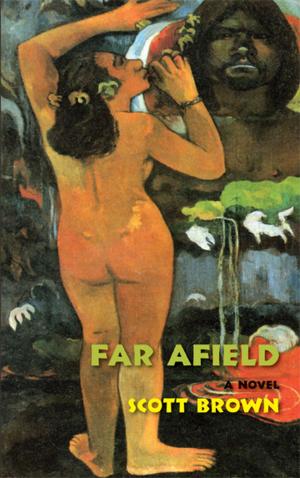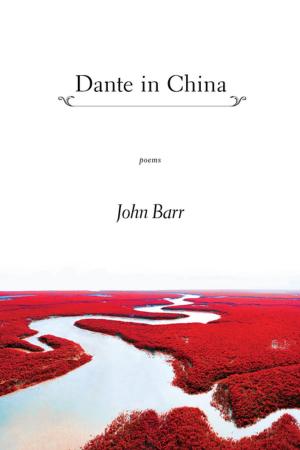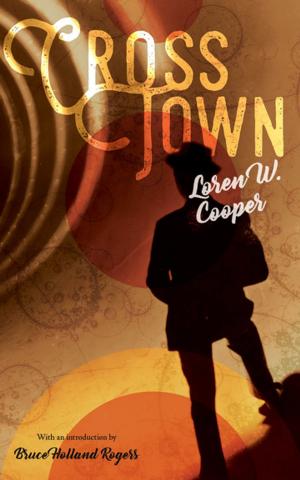| Author: | CECILE ROSSANT | ISBN: | 9781597091985 |
| Publisher: | Red Hen Press | Publication: | January 1, 2012 |
| Imprint: | Red Hen Press | Language: | English |
| Author: | CECILE ROSSANT |
| ISBN: | 9781597091985 |
| Publisher: | Red Hen Press |
| Publication: | January 1, 2012 |
| Imprint: | Red Hen Press |
| Language: | English |
Tokyo Bay Traffic, set in a geographically extended Tokyo, follows three characters through the illusory world of Tokyo’s hostess clubs and a newly built theme park, Fresh Style New York (F.S.N.Y).
Kang, a hard-working accountant, doesn’t at first stand out from the group with which he spends his waking life. In The Tuna Club, for example, he cheers the hostesses in unison with his fellow colleagues. Like everyone else, he returns home dead drunk. But directed by an undefined desire to escape, Kang convinces a colleague to accompany him to an avant-garde strip club in F.S.N.Y, a theme park on a man-made island off the coast of Tokyo and site of the dance theater, The Club of the Perfect Fragment. The performances he sees at the club obsess Kang and he returns alone a few nights later. Leaving the theater, mesmerized, he loses himself in the more desolate streets of F.S.N.Y.
Beneath the overhead ramps to the Brooklyn Bridge Barge, Kang crosses paths with Livia, a dancer and one of F.S.N.Y.’s few permanent residents. Livia, daughter of an American GI and a Japanese army base hostess, has only recently left her Okinawan hometown in search of a better life in Tokyo. She quickly finds work in F.S.N.Y., choreographing dances and performing at the Club of the Perfect Fragment. Although fully engaged in her work at the club, she is subject to bouts of temporary amnesia. In the early morning hours both Kang and Livia are audience to an unorthodox performance on a deserted city corner: an old bum repeatedly inflates nude “play-dolls” until they burst. Kang is driven to pick up the pieces…
Then there is Ki-ku-ko, the one-eyed hostess, who approaches every situation like an improvisation. Even when in the hospital recuperating from the accident in which a small pebble struck her, blinding her in one eye, Ki-ku-ko exhibits eccentric behavior. Unable to recognize their daughter or control her wildness, her parents force her to leave their house and set up on her own. Soon after, she begins working as a hostess. Like a performance artist, Ki-ku-ko develops multiple personas. Either she’s working in disguise as Jaki-O at the hostess club Fu-fu’s (Feline Unlimited) or she’s experimenting with customers in the self-constructed erotic landscape in her one-bedroom apartment.
The story culminates in two meetings: the first in the form of a dance of power between Ki-ku-ko and Livia. The second meeting is between Kang and the ineffable erotic energy he had heretofore been at such pains to neutralize.
At the heart of the novel is Tokyo Bay itself — its polluted waters harboring an elusive flotilla: boats rocking with a group of illicit pleasure seekers.
Tokyo Bay Traffic, set in a geographically extended Tokyo, follows three characters through the illusory world of Tokyo’s hostess clubs and a newly built theme park, Fresh Style New York (F.S.N.Y).
Kang, a hard-working accountant, doesn’t at first stand out from the group with which he spends his waking life. In The Tuna Club, for example, he cheers the hostesses in unison with his fellow colleagues. Like everyone else, he returns home dead drunk. But directed by an undefined desire to escape, Kang convinces a colleague to accompany him to an avant-garde strip club in F.S.N.Y, a theme park on a man-made island off the coast of Tokyo and site of the dance theater, The Club of the Perfect Fragment. The performances he sees at the club obsess Kang and he returns alone a few nights later. Leaving the theater, mesmerized, he loses himself in the more desolate streets of F.S.N.Y.
Beneath the overhead ramps to the Brooklyn Bridge Barge, Kang crosses paths with Livia, a dancer and one of F.S.N.Y.’s few permanent residents. Livia, daughter of an American GI and a Japanese army base hostess, has only recently left her Okinawan hometown in search of a better life in Tokyo. She quickly finds work in F.S.N.Y., choreographing dances and performing at the Club of the Perfect Fragment. Although fully engaged in her work at the club, she is subject to bouts of temporary amnesia. In the early morning hours both Kang and Livia are audience to an unorthodox performance on a deserted city corner: an old bum repeatedly inflates nude “play-dolls” until they burst. Kang is driven to pick up the pieces…
Then there is Ki-ku-ko, the one-eyed hostess, who approaches every situation like an improvisation. Even when in the hospital recuperating from the accident in which a small pebble struck her, blinding her in one eye, Ki-ku-ko exhibits eccentric behavior. Unable to recognize their daughter or control her wildness, her parents force her to leave their house and set up on her own. Soon after, she begins working as a hostess. Like a performance artist, Ki-ku-ko develops multiple personas. Either she’s working in disguise as Jaki-O at the hostess club Fu-fu’s (Feline Unlimited) or she’s experimenting with customers in the self-constructed erotic landscape in her one-bedroom apartment.
The story culminates in two meetings: the first in the form of a dance of power between Ki-ku-ko and Livia. The second meeting is between Kang and the ineffable erotic energy he had heretofore been at such pains to neutralize.
At the heart of the novel is Tokyo Bay itself — its polluted waters harboring an elusive flotilla: boats rocking with a group of illicit pleasure seekers.















